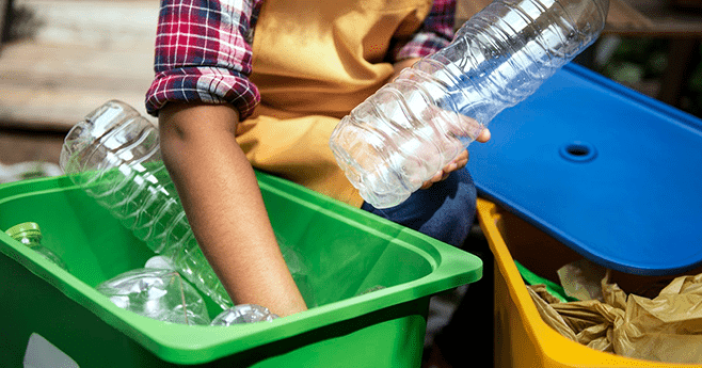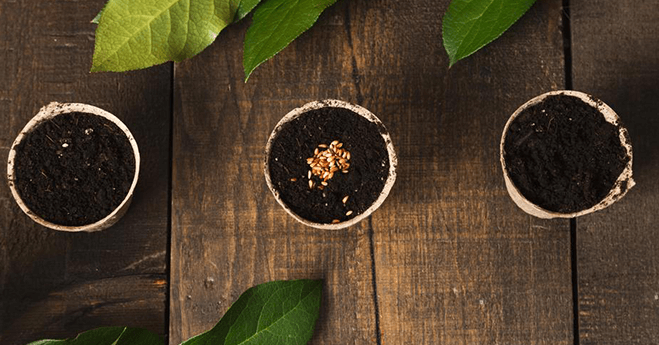November 15th is America Recycles Day! This nationwide event is part of the Keep America Beautiful organization, which aims to end littering, improve recycling, and beautify communities. In the spirit of the day, here are seven facts and tips about recycling you may not have known.
1. Using recycled paper can help conserve water.
In order to produce paper directly from trees, it requires about 7,000 gallons of water. Instead of producing paper, this water could be used to help mitigate the effects of droughts. Additionally, using recycled paper can help lower the number of trees being cut down every year—about 900 million trees per year to produce our paper.
2. You can recycle more in curbside recycling than you think.
Many people are not aware of what can and cannot be recycled from their homes. For example, Americans use about 80 billion aluminum cans each year, and most of those end up in landfills – even though they are recyclable in your curbside recycling bin! In addition, some areas accept polystyrene foam as a recyclable item, while others do not. Check with your local city or municipalities for details on what items your neighborhood accepts.
3. Motor oil can be recycled.
Used motor will actually never wear out. It just gets dirty and needs to be cleaned in order to be used again. Some auto stores will accept used motor oil (and car batteries) and will recycle them. Some communities also accept properly packaged motor oil in curbside recycling, or you can drop off your used motor oil at a collection center.
4. Old clothes can be recycled—even if they are too damaged to be re-worn.
About 10.5 million tons of clothing made their way into our landfills last year. If you are emptying out your closet, consider donating old clothing to organizations like Goodwill or the Salvation Army if items are in good condition. If they are not in re-wearable condition, consider dropping them off at textile recycling bins, like the American Textile Recycling Services, or check Earth 911 or Recycle Now to find local organizations that accept textile donations. Some retailers also accept used clothing.
5. Making the switch from polystyrene (“Styrofoam”) makes a difference.
Every year, Americans use about 25 billion polystyrene cups (often known as Styrofoam). Worldwide, polystyrene accounts for about 30% of total landfill space. It also takes at least 500 years for the material to decompose in landfills. Minimizing our use of polystyrene by using recyclable cups and to-go containers would help to reduce landfill space and mitigate the effects that it has on our environment.
6. Annually, approximately 1 trillion single-use plastic bags are used.
In many communities, these bags are not accepted in curbside recycling programs because they can get stuck in and jam the machinery. However, most grocery stores have collection bins for these bags. When recycling plastic bags, ensure that the plastic type is #2 or #4. If it is not, the type of plastic resin in unclear and should not be recycled in these collection bins.
7. In America, 75% of our waste is recyclable but we only recycle about 30% of it.
One way to start recycling more of our waste is by educating ourselves about what can and cannot be recycled. Websites like Recycle Now, Earth 911, and your local area’s Recycling and Solid Waste website will show what to do with certain items, what your local regulations about recycling are, and where collection bins are located.
There is a lot of information out there about recycling, and it can be difficult to sort through it all and find a good place to start if you are an individual or a household. Educating yourself about recycling and taking action will help us get to that 75% threshold for our waste! Right now, our recycling rate is 34.5% and if we were to increase that to 75%, it would be the emissions equivalent of taking 50 million cars off the road.
If you want to learn more about recycling or to recycle more in your life, visit America Recycles Day’s website and take their pledge!
ADEC ESG Solutions is a leading provider of ESG solutions, with expertise in delivering fully-integrated consulting, software, and data management services. Connect with us on Facebook, Twitter, and LinkedIn for the latest in sustainability around the world.




